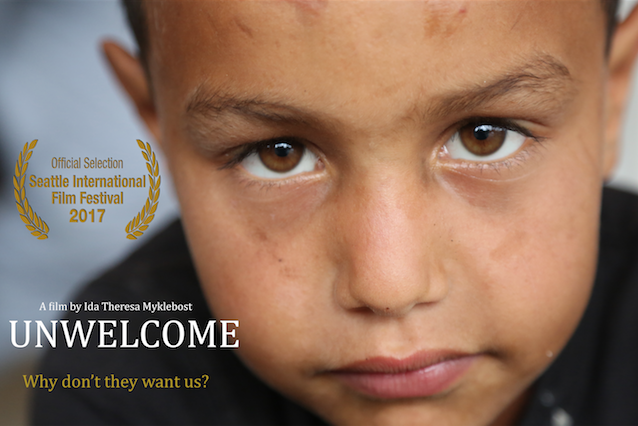With experience covering the Syrian War and training at the Documentary School at the New York Film Academy, director Ida Theresa Myklebost takes us up-close and personal into a makeshift refugee camp in Greece where a young boy, Menwar, and his family face the biggest decision of their lives. “Unwelcome” captures his emotional journey and his flight from the devastating conditions in Syria. His story will turn everything you thought you knew about the Syrian refugee crisis on its head. And now, the film will have its North American Premiere at the Seattle International Film Festival on May 27, 2017 at 6pm.

“In times when people become overwhelmed with negative media and fear for potential terrorist attacks, it is important to remember who the actual vast majority of these refugees are, and who really gets their lives destroyed by the terror organizations,” says Myklebost. “The children of Syria have had their lives turned completely upside down. These are the real victims of ISIS and the other terrorist organizations. They are the ones who are being pulled into this war completely against their will, and who have no power to escape.”
Myklebost is a Norwegian journalist, with background from some of the country’s largest TV-stations. She wanted to go deeper and explore the human stories behind the state news. In 2015 she moved to New York to pursue documentary filmmaking at New York Film Academy.
“Although I have a lot of experience in the media world and have worked under high pressure situations covering among others the Syrian war, the knowledge and training I got from NYFA was indispensable,” said Myklebost. “Mainly, I learned to organize on a larger scale, planning a three continental shoot.”
She traveled directly from New York to India to shoot a film that had to be coordinated with her later shoot in Greece. Once in Athens, she led a team, keeping a cool and organized head under high pressure.
Myklebost listed some of the complications, saying, “The police tried to take our passports away, the camp got cleared, we met a few threatening characters who didn’t like us filming, human smugglers and frustrated people talking about ISIS, planning a budget, dealing with many people in chaotic and sometimes dangerous situations, and planning a film while in the field.”
I am really content with how I went over all the shots every night, and saw what we had and didn’t have,” said Myklebost. “I thought out what stories we might be onto and made detailed storyboards, so when I got back to New York, there were no surprises and I could just stitch the film together. These are the skills NYFA taught me. I’ve always been a go-getter, and a hard worker, but NYFA pushed me further. They took the skills I already had and offered me an opportunity to see how far I could go with this. They became a platform where I could bounce my ideas, discuss solutions, learn from the professionals and their experiences; and thus enter the field that much more prepared. The true lesson I take away from NYFA is to finally understand the value and importance of good and thorough pre-production. If you know what you want and how to get it (and how to get it if the first plan doesn’t work, or the second or the third), then the process of making movies in the field, and on the run, becomes that much more enjoyable. It’s hard work, but it feels like play if you’re well prepared.”